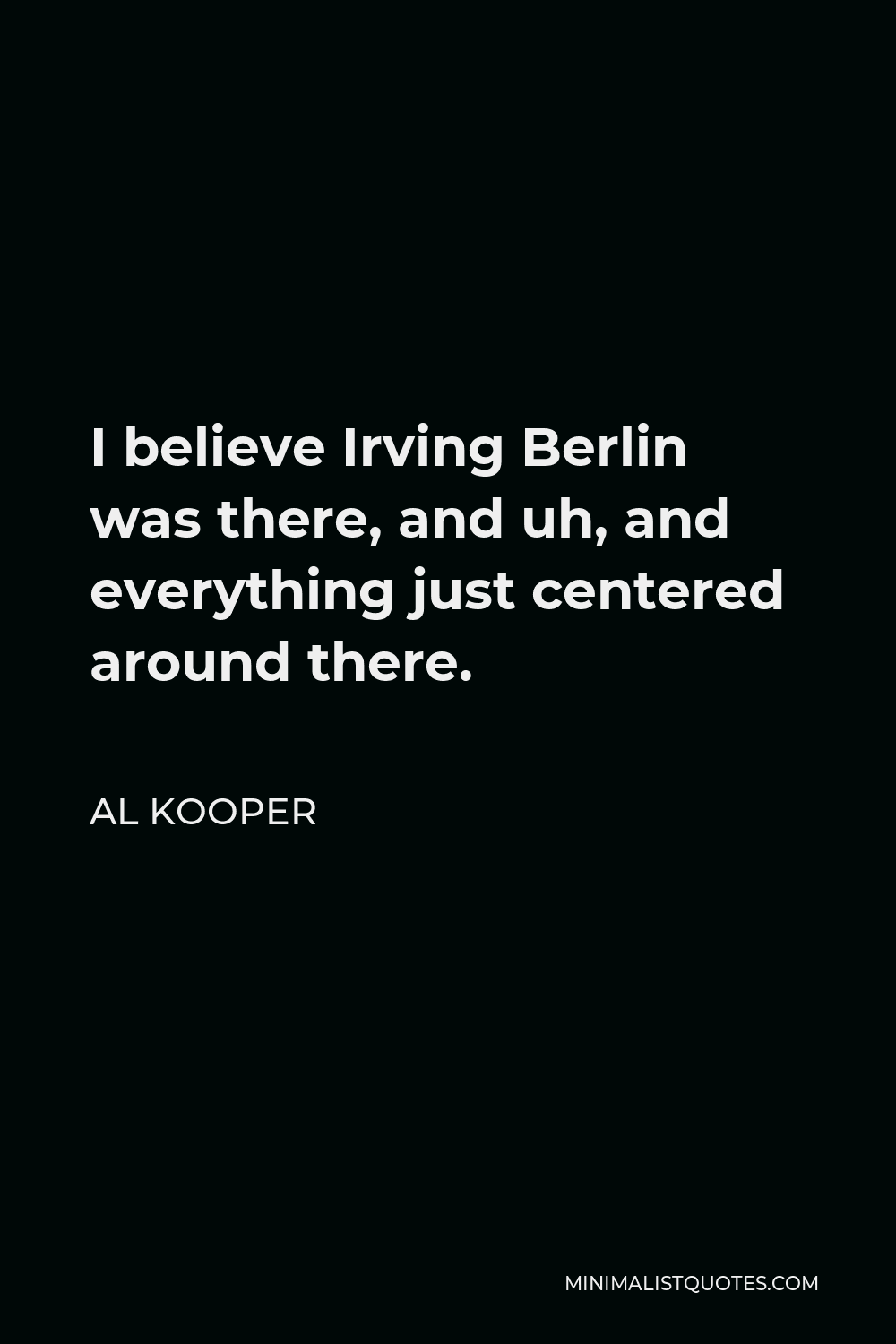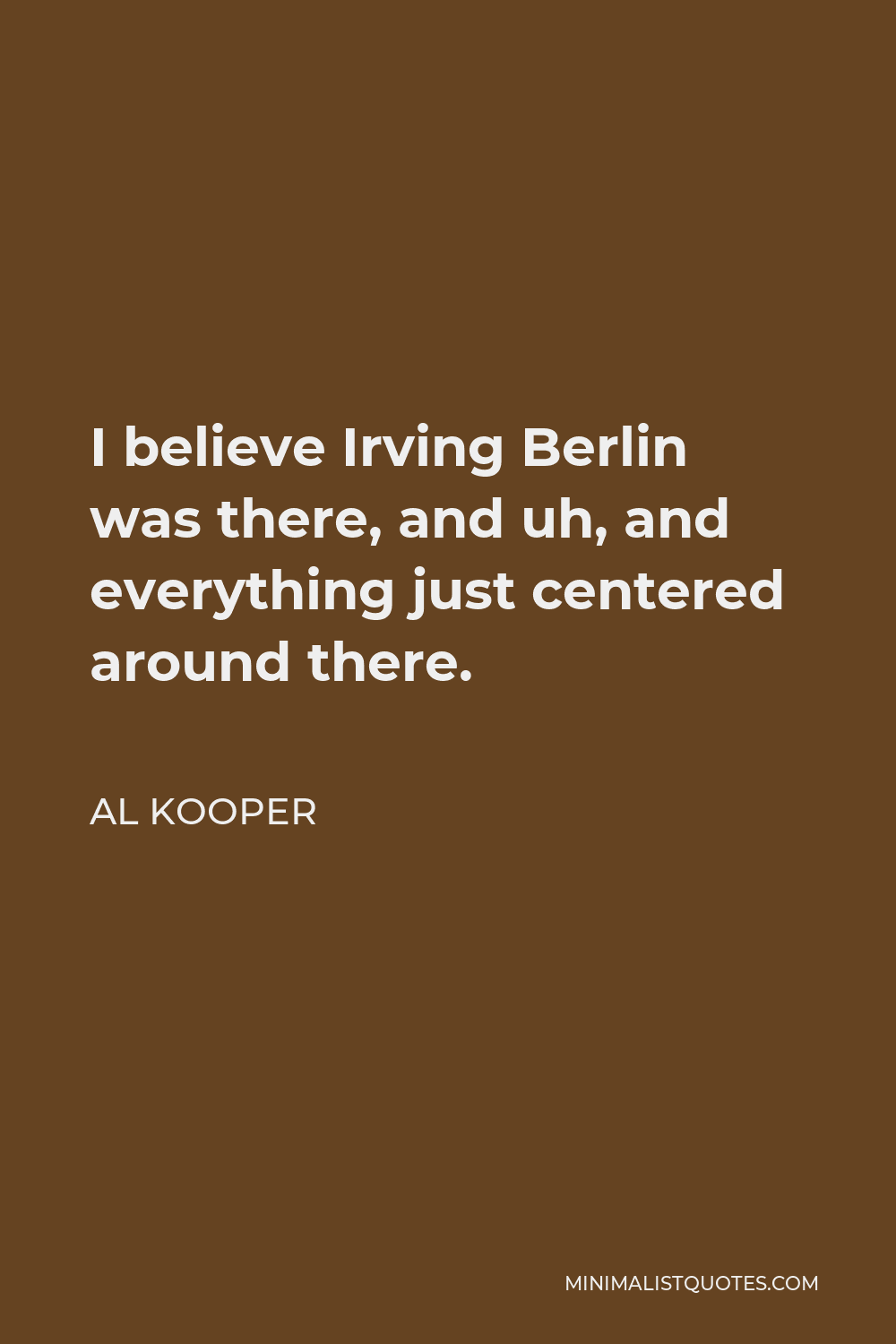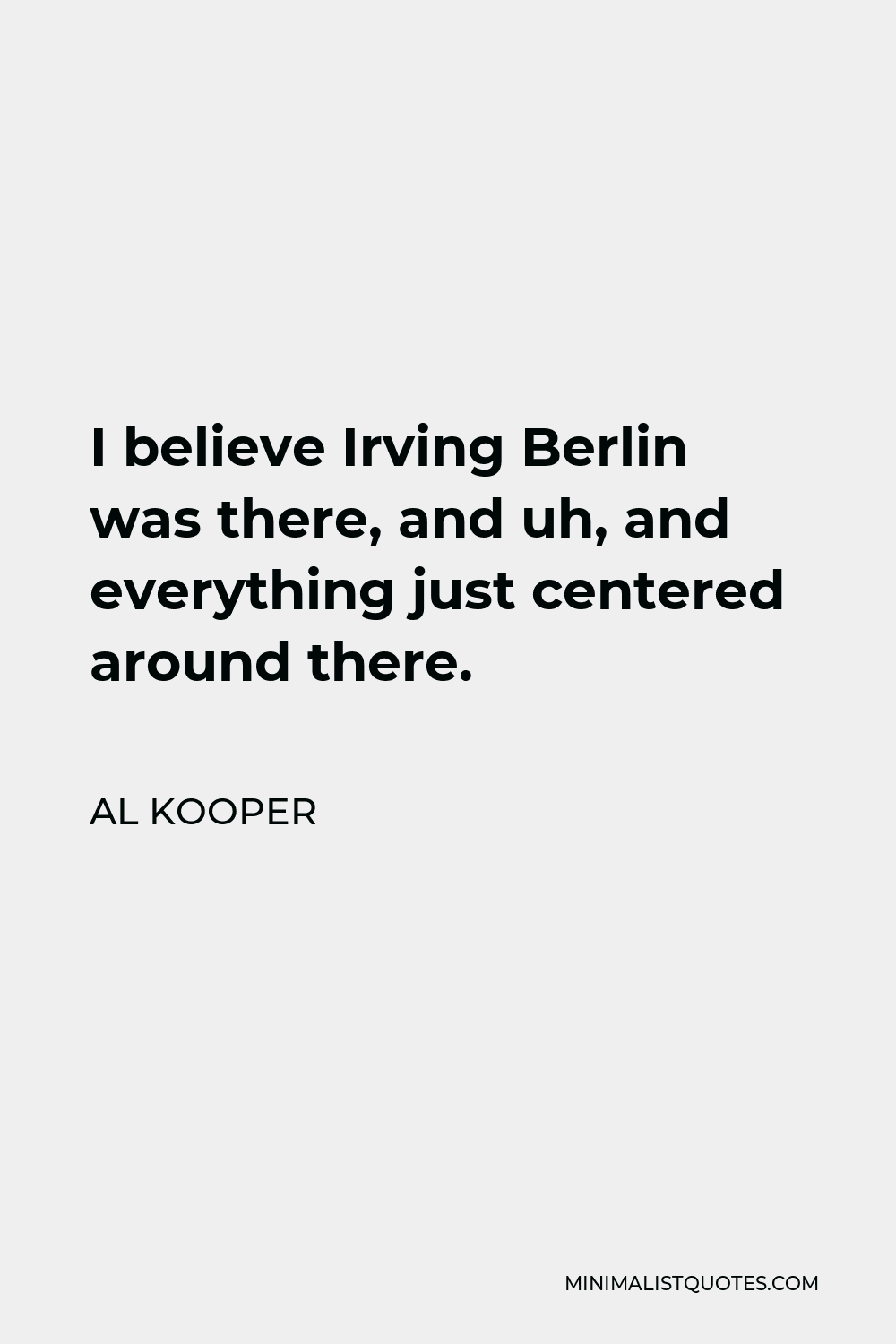Mike Bloomfield sat down and started playing, and I went, whoa! Because I had never heard any white person play like that before.
AL KOOPERI believe Irving Berlin was there, and uh, and everything just centered around there.
More Al Kooper Quotes
-





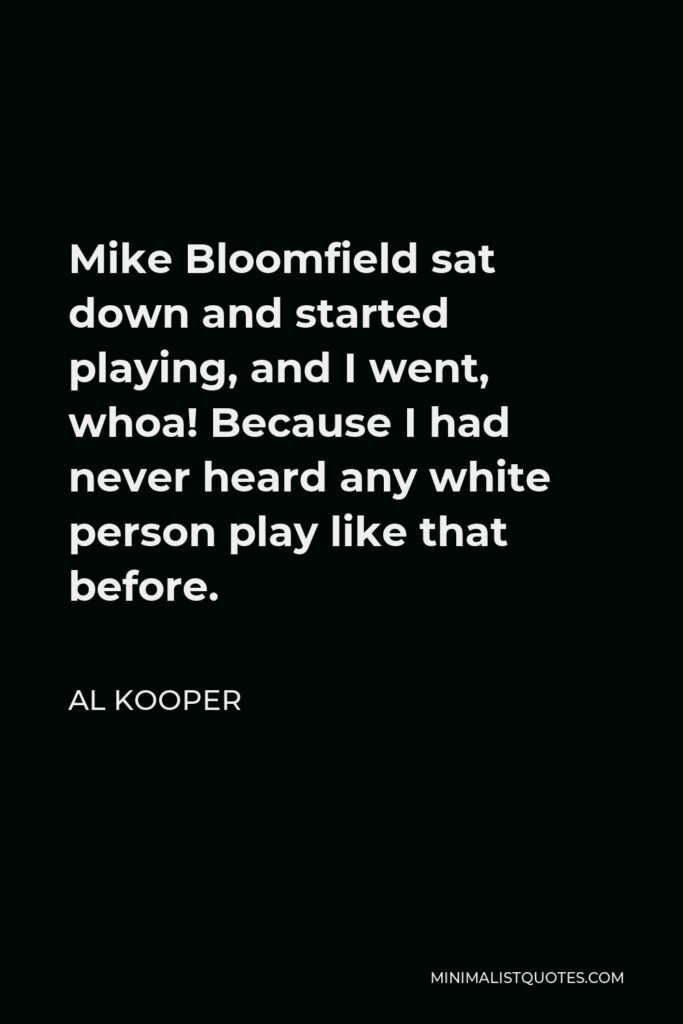

-





![Al Kooper Quote - Only through sheer ambition did I end up playing on [Bob Dylan sessions] and the fact that I could do that is a testament to how disorganized it really was.](https://minimalistquotes.com/wp-content/uploads/2022/07/only-through-sheer-ambition-did-i-end-up-playing-o-683x1024.jpg)

Only through sheer ambition did I end up playing on [Bob Dylan sessions] and the fact that I could do that is a testament to how disorganized it really was.
AL KOOPER -





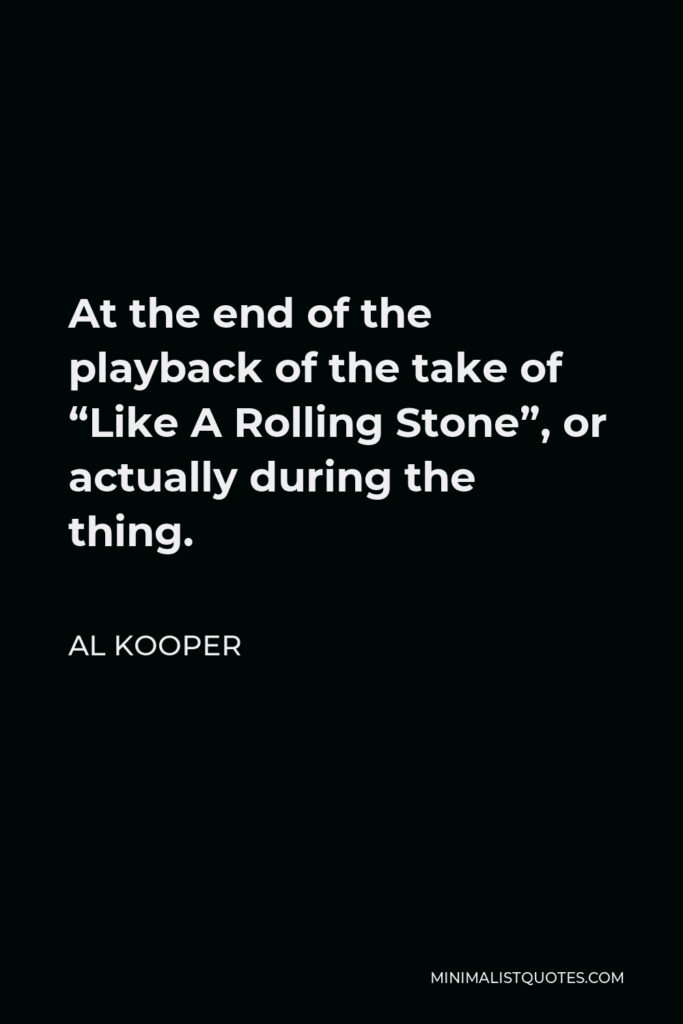

At the end of the playback of the take of “Like A Rolling Stone”, or actually during the thing.
AL KOOPER -





![Al Kooper Quote - Musically Bob [Dylan] is a primitive. He’s not a Gershwin, or somebody that uses eloquent music terms.](https://minimalistquotes.com/wp-content/uploads/2022/07/musically-bob-dylan-is-a-primitive-hes-not-a-gersh-683x1024.jpg)

Musically Bob [Dylan] is a primitive. He’s not a Gershwin, or somebody that uses eloquent music terms.
AL KOOPER -





![Al Kooper Quote - I think it was Columbia politics, Columbia Records politics that, that, Tom Wilson left [Bob Dylan] after “Like A Rolling Stone”.](https://minimalistquotes.com/wp-content/uploads/2022/07/i-think-it-was-columbia-politics-columbia-records--683x1024.jpg)

I think it was Columbia politics, Columbia Records politics that, that, Tom Wilson left [Bob Dylan] after “Like A Rolling Stone”.
AL KOOPER -





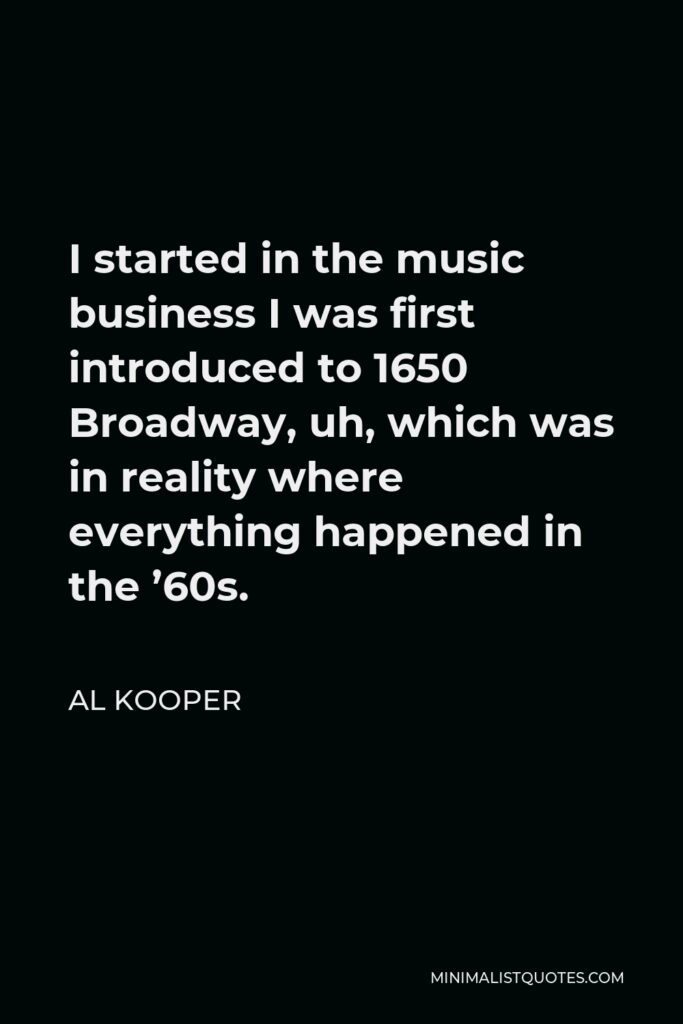

I started in the music business I was first introduced to 1650 Broadway, uh, which was in reality where everything happened in the ’60s.
AL KOOPER -





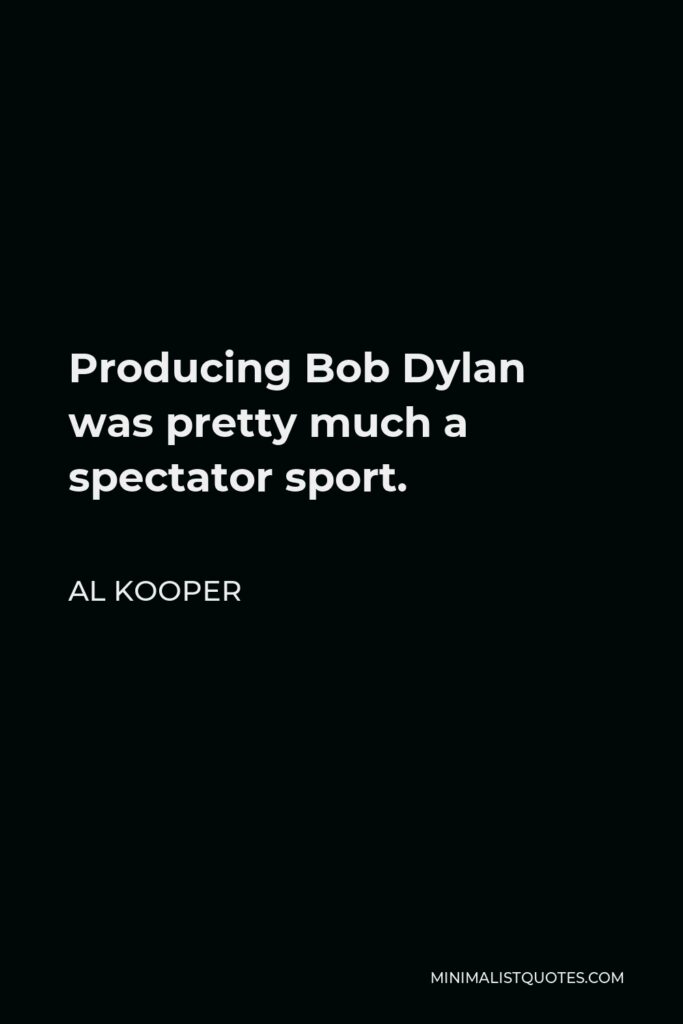

Producing Bob Dylan was pretty much a spectator sport.
AL KOOPER -





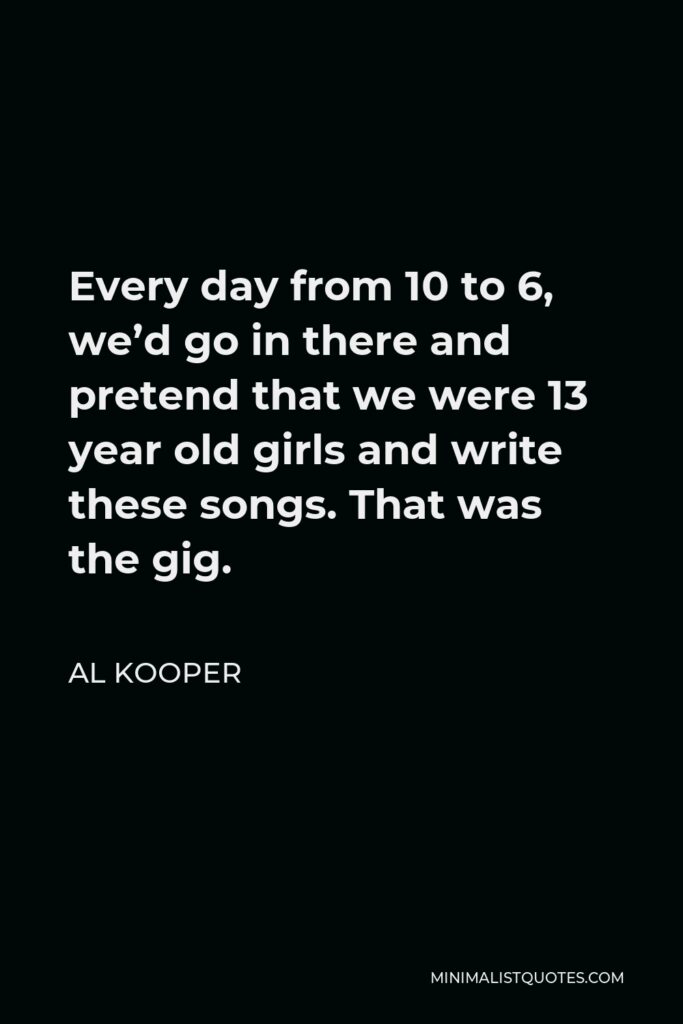

Every day from 10 to 6, we’d go in there and pretend that we were 13 year old girls and write these songs. That was the gig.
AL KOOPER -





![Al Kooper Quote - The first generation from the ’50s that were in 1650 [Broadway] were pretty much all crooks,](https://minimalistquotes.com/wp-content/uploads/2022/07/the-first-generation-from-the-50s-that-were-in-165-683x1024.jpg)

The first generation from the ’50s that were in 1650 [Broadway] were pretty much all crooks,
AL KOOPER -





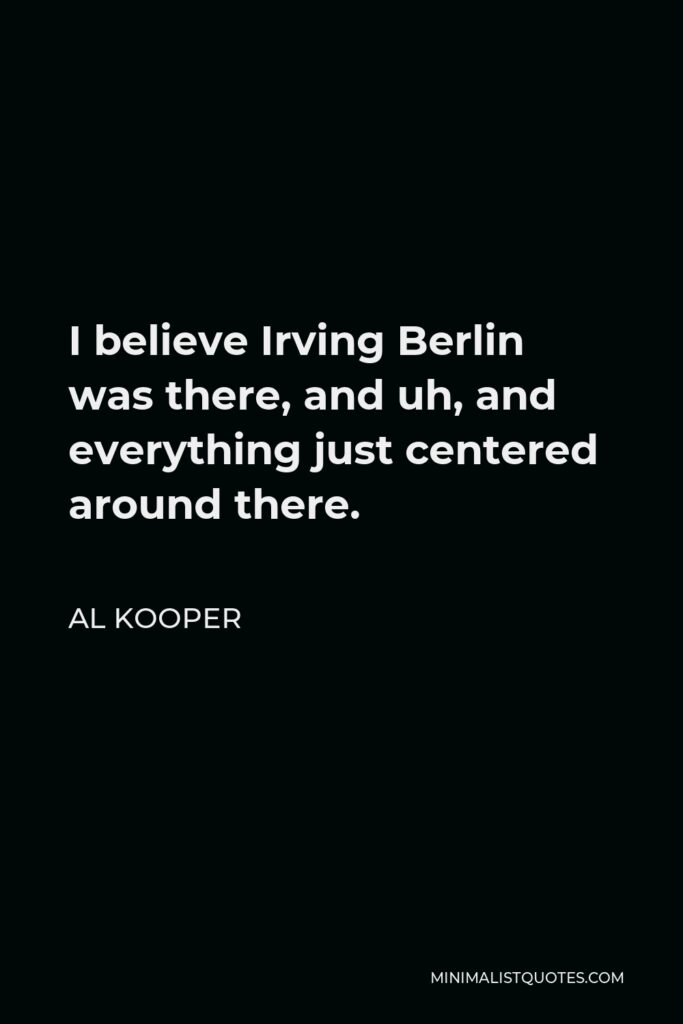

I believe Irving Berlin was there, and uh, and everything just centered around there.
AL KOOPER -





![Al Kooper Quote - The [Bob] Dylan sessions were very disorganized, to say the least. I mean, the “Like A Rolling Stone” session I was invited by the producer to watch.](https://minimalistquotes.com/wp-content/uploads/2022/07/the-bob-dylan-sessions-were-very-disorganized-to-s-683x1024.jpg)

The [Bob] Dylan sessions were very disorganized, to say the least. I mean, the “Like A Rolling Stone” session I was invited by the producer to watch.
AL KOOPER -





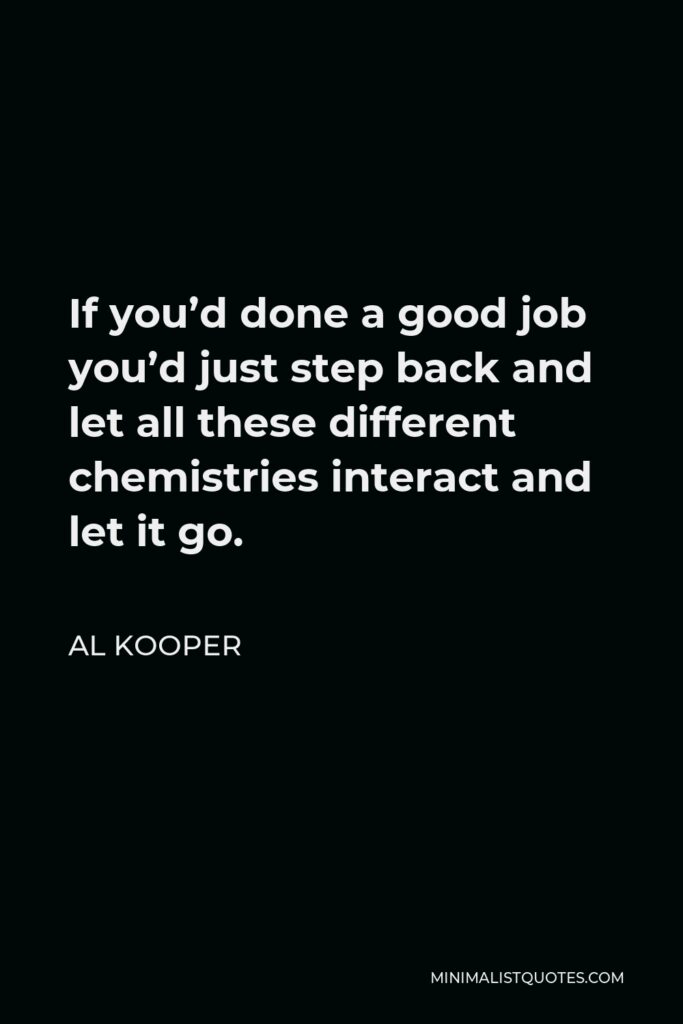

If you’d done a good job you’d just step back and let all these different chemistries interact and let it go.
AL KOOPER -





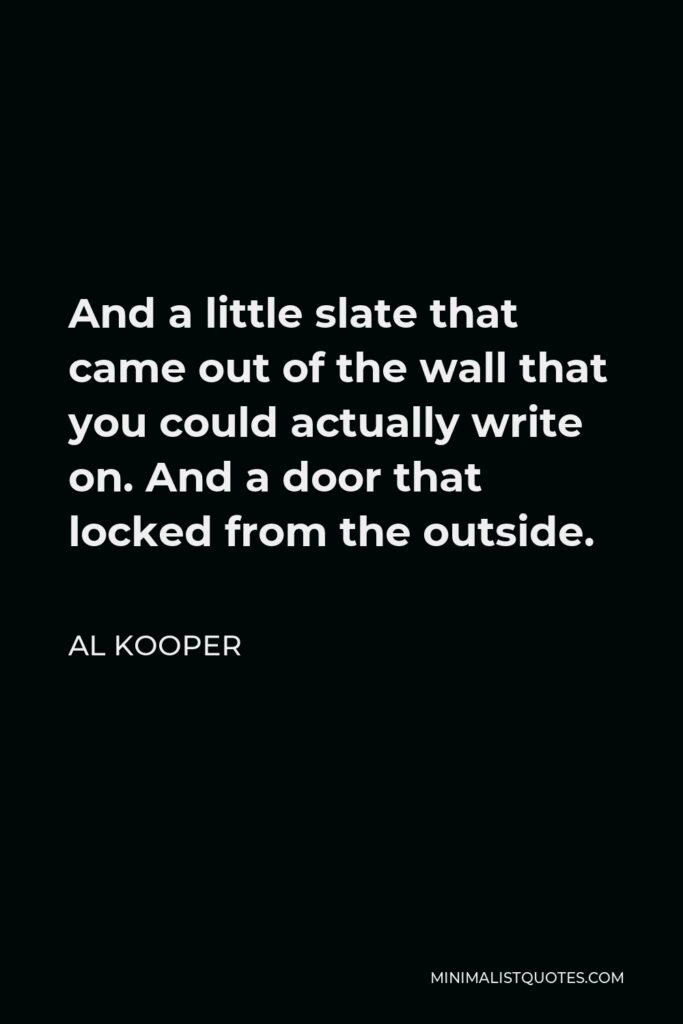

And a little slate that came out of the wall that you could actually write on. And a door that locked from the outside.
AL KOOPER -





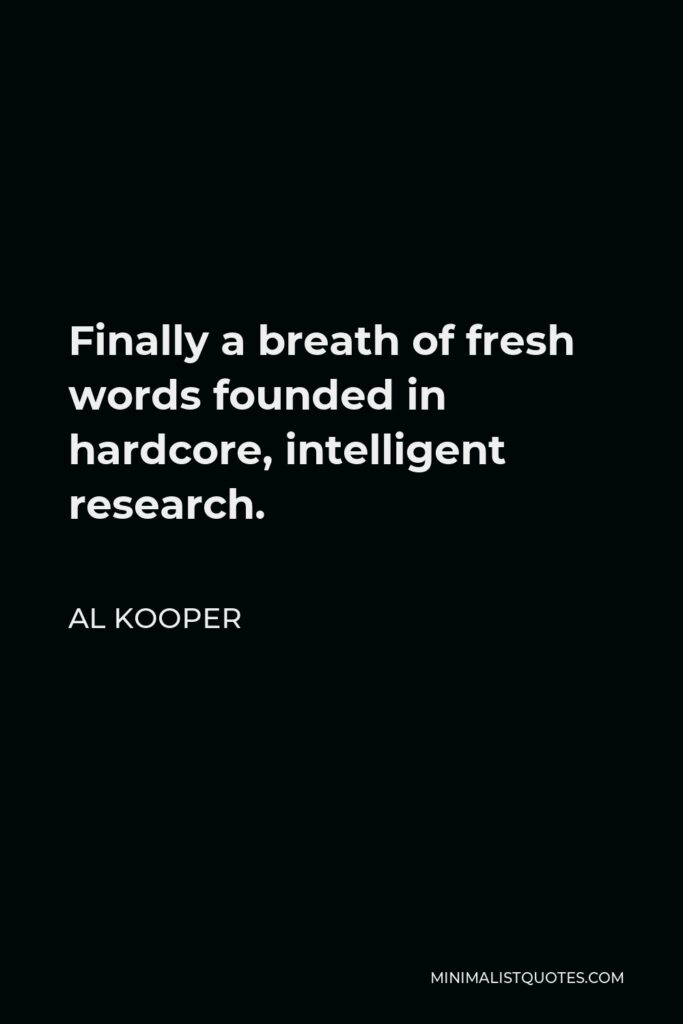

Finally a breath of fresh words founded in hardcore, intelligent research.
AL KOOPER -







Bob Dylan said to the producer, turn up the organ. And Tom Wilson said, oh man, that guy’s not an organ player. And Dylan said.
AL KOOPER -





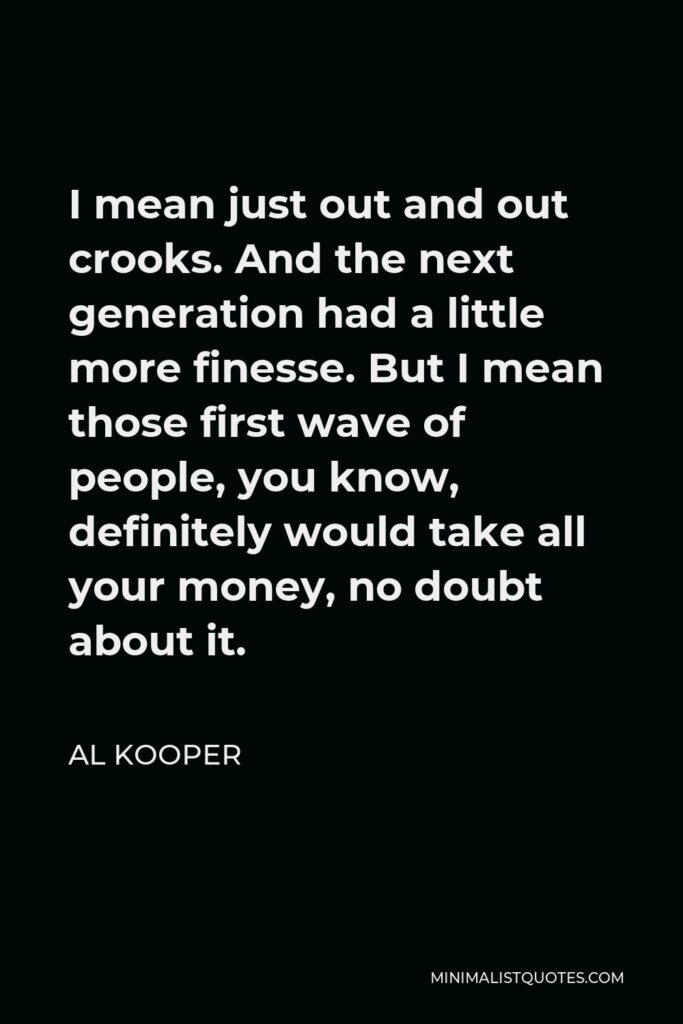

I mean just out and out crooks. And the next generation had a little more finesse. But I mean those first wave of people, you know, definitely would take all your money, no doubt about it.
AL KOOPER
